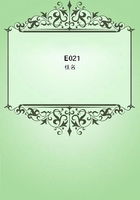
第122章
But property passes through donation or inheritance to those who do not create it. Gift, in one case, makes it as really the new owner's, as labor made it the first owner's: in the other case, of patrimony, the law makes an ownership, which will be valid in each man's view according to the estimate which he sets on the public tranquillity.
It was not, however, found easy to embody the readily admitted principle, that property should make law for property, and persons for persons: since persons and property mixed themselves in every transaction. At last it seemed settled, that the rightful distinction was, that the proprietors should have more elective franchise than non-proprietors, on the Spartan principle of "calling that which is just, equal; not that which is equal, just."
That principle no longer looks so self-evident as it appeared in former times, partly, because doubts have arisen whether too much weight had not been allowed in the laws, to property, and such a structure given to our usages, as allowed the rich to encroach on the poor, and to keep them poor; but mainly, because there is an instinctive sense, however obscure and yet inarticulate, that the whole constitution of property, on its present tenures, is injurious, and its influence on persons deteriorating and degrading; that truly, the only interest for the consideration of the State, is persons: that property will always follow persons; that the highest end of government is the culture of men: and if men can be educated, the institutions will share their improvement, and the moral sentiment will write the law of the land.
If it be not easy to settle the equity of this question, the peril is less when we take note of our natural defences. We are kept by better guards than the vigilance of such magistrates as we commonly elect. Society always consists, in greatest part, of young and foolish persons. The old, who have seen through the hypocrisy of courts and statesmen, die, and leave no wisdom to their sons. They believe their own newspaper, as their fathers did at their age. With such an ignorant and deceivable majority, States would soon run to ruin, but that there are limitations, beyond which the folly and ambition of governors cannot go. Things have their laws, as well as men; and things refuse to be trifled with. Property will be protected. Corn will not grow, unless it is planted and manured; but the farmer will not plant or hoe it, unless the chances are a hundred to one, that he will cut and harvest it. Under any forms, persons and property must and will have their just sway. They exert their power, as steadily as matter its attraction. Cover up a pound of earth never so cunningly, divide and subdivide it; melt it to liquid, convert it to gas; it will always weigh a pound: it will always attract and resist other matter, by the full virtue of one pound weight; -- and the attributes of a person, his wit and his moral energy, will exercise, under any law or extinguishing tyranny, their proper force, -- if not overtly, then covertly; if not for the law, then against it; with right, or by might.
The boundaries of personal influence it is impossible to fix, as persons are organs of moral or supernatural force. Under the dominion of an idea, which possesses the minds of multitudes, as civil freedom, or the religious sentiment, the powers of persons are no longer subjects of calculation. A nation of men unanimously bent on freedom, or conquest, can easily confound the arithmetic of statists, and achieve extravagant actions, out of all proportion to their means; as, the Greeks, the Saracens, the Swiss, the Americans, and the French have done.
In like manner, to every particle of property belongs its own attraction. A cent is the representative of a certain quantity of corn or other commodity. Its value is in the necessities of the animal man. It is so much warmth, so much bread, so much water, so much land. The law may do what it will with the owner of property, its just power will still attach to the cent. The law may in a mad freak say, that all shall have power except the owners of property: they shall have no vote. Nevertheless, by a higher law, the property will, year after year, write every statute that respects property.
The non-proprietor will be the scribe of the proprietor. What the owners wish to do, the whole power of property will do, either through the law, or else in defiance of it. Of course, I speak of all the property, not merely of the great estates. When the rich are outvoted, as frequently happens, it is the joint treasury of the poor which exceeds their accumulations. Every man owns something, if it is only a cow, or a wheelbarrow, or his arms, and so has that property to dispose of.